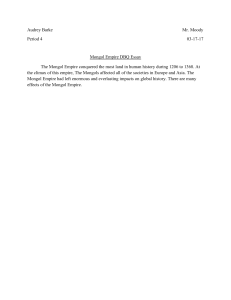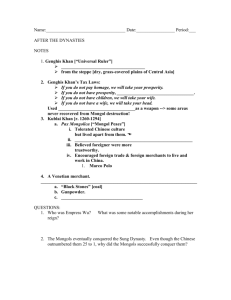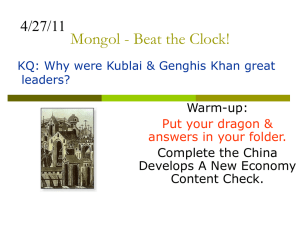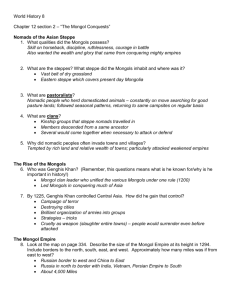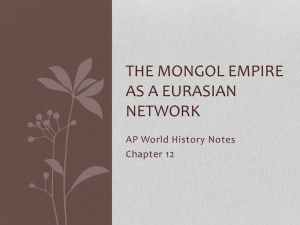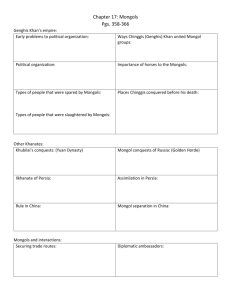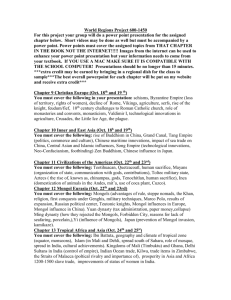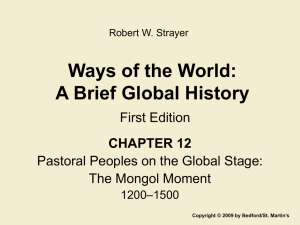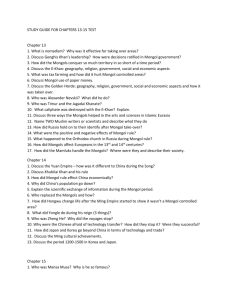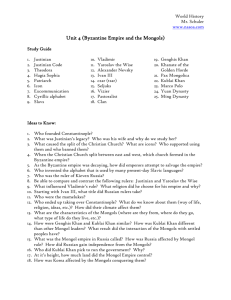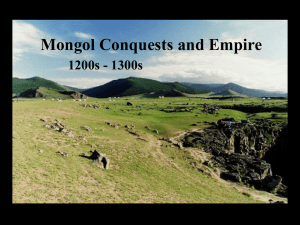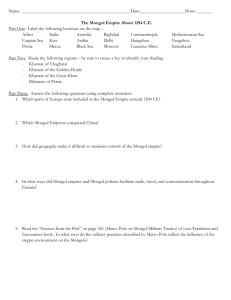WH-TCI-Ch.4.4-4.5
advertisement
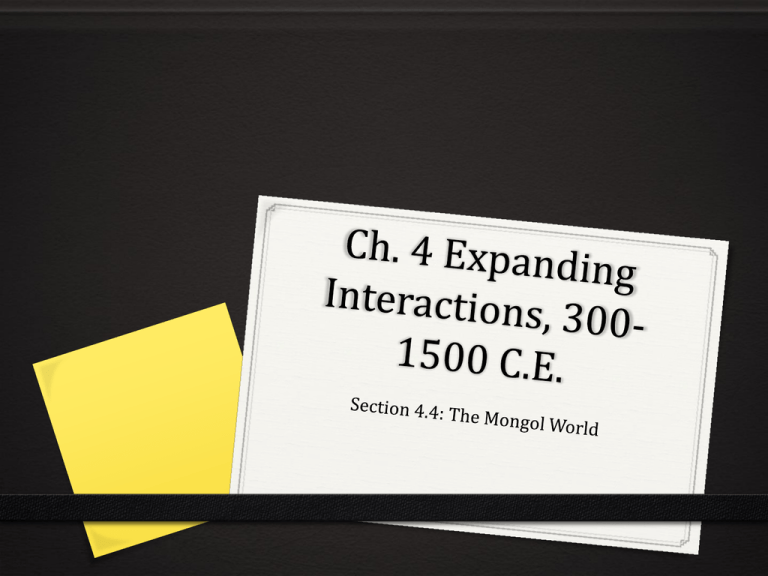
The Mongol Empire 0 The Mongols were a group of nomadic tribes from the plains of Central Asia 0 In 1206, a Mongol leader, or a khan, managed to unite the Mongol tribes into a powerful fighting force 0 His name was Temujin, or Genghis Khan (universal ruler) 0 Through force, created the largest empire in the world The Mongol Empire 0 Factors that contributed Genghis Khan’s success: 0 Mongols were fierce warriors and excellent horsemen 0 Warriors were well trained and highly disciplined 0 Genghis was skilled military strategist 0 Brutal fighter, often left NO survivors after conquering villages 0 Died in 1227 C.E., power passed down to his son and grandsons Mongol Rule 0 Little experience in governing because they were nomads 0 Had their own legal system that forbade theft and betrayal 0 They allowed conquered peoples to maintain their own customs and traditions 0 Practiced religious tolerance 0 Allowed people to practice any religion Mongol Rule 0 Mongols expanded trade routes and built a courier system to speed communication 0 Major trade route known as the Silk Road 0 Result: trade increased, economy prospered 0 Invented paper $$$$ 0 Aside from goods, ideas and inventions also traveled Map of the Silk Road The Mongol Collapse 0 Empire lasted for around a century (100 years) 0 Reasons for collapse: political disunity, loss of warrior spirit 0 Main reason: DISEASE (bubonic plague, Black Death) 0 Killed anywhere from 25-50% of the population in 20 years 0 Disease spread along the Silk Road 0 This allowed for invaders to conquer the Mongol empire 4.5 Expanding Networks of Exchange 0 Trade Networks: 0 Largest was the Silk Road 0 Connected Asia, Europe, Africa and the Mediterranean 0 Major sea routes also connected Afro-Eurasia World Religions 0 Exchange networks and growth of empires also spread religious beliefs across Afro-Eurasia 0 Hinduism spread throughout India and Southeast Asia 0 Buddhism spread throughout Asia 0 Christianity spread throughout Europe, Russia, Ethiopia and Egypt 0 Judaism spread throughout western Europe and Central Asia 0 Crusades: Series of wars between Christians and Muslims over the Holy Land (Jerusalem) 0 Lasted between 1095-1250 C.E. Exchanging Knowledge 0 Ideas and knowledge spread across the exchange networks 0 Discoveries in math, astronomy and medicine 0 Technologies in areas such as irrigation, navigation, printing and papermaking 0 Arabic numerals allowed for development of modern math Environmental Factors 0 Populations suffered from devastating plagues that were transmitted along trade routes 0 Such as smallpox, measles and the bubonic plague 0 Bubonic plague was the reason for the collapse of the Han, Roman and Mongolian empires 0 As networks expanded, so did the danger of infectious disease 0 Deforestation lead to flooding of villages during rainy season 0 Needed to cut down forests to make more room for farming
